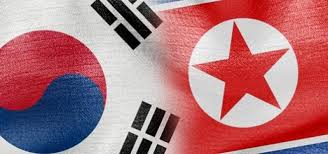North Korea on Saturday test-fired what appeared to be a submarine-launched ballistic missile (SLBM), Seoul’s defense ministry said, a day after the US and South Korea decided to deploy an advanced missile defense system in the S
 North Korea on Saturday test-fired what appeared to be a submarine-launched ballistic missile (SLBM), Seoul's defense ministry said, a day after the US and South Korea decided to deploy an advanced missile defense system in the South.
North Korea on Saturday test-fired what appeared to be a submarine-launched ballistic missile (SLBM), Seoul's defense ministry said, a day after the US and South Korea decided to deploy an advanced missile defense system in the South.
The launch was apparently successful but the missile failed in the early stage of flight, the South Korean defence ministry said in a statement.
North Korea previously fired an SLBM on April 23 in a test hailed as an "eye-opening success" by leader Kim Jong-Un, who at the time declared his country had the ability to strike Seoul and the US whenever it pleased.
Seoul said the North launched "what was believed to be an SLBM" from waters off the northeastern port of Sinpo at around 11:30 am (0230 GMT).
Yonhap news agency said the missile, launched from a Sinpo-class submarine, reached an altitude of some 10 kilometres (six miles) before exploding in mid-air.
The US Strategic Command said the missile was tracked over the Sea of Japan, where initial indications suggested it fell.
The North American Aerospace Defense Command said the launch did not pose a threat to North America.
"We strongly condemn this and North Korea's other recent missile tests, which violate UN Security Council Resolutions explicitly prohibiting North Korea's launches using ballistic missile technology", Pentagon Spokesman Gary Ross said.
He urged the North "to refrain from actions that further raise tensions in the region".
Seoul's defence ministry noted that "North Korea has been persistent in violating UN resolutions by launching ballistic missiles continuously".
It added that the North carried out back-to-back tests of a powerful new medium-range missile on June 22, which sparked swift international condemnation.
The two missiles achieved a significant increase in flight distance over previous failed launches and were believed to be of a much-hyped, intermediate-range Musudan missile -- theoretically capable of reaching US bases as far away as Guam, the ministry said in June.
"We strongly condemn such provocative acts", it said Saturday.
Japanese Prime Minister Shinzo Abe said the launch did not pose an immediate threat.
"We don't consider the missile launch to be anything that would immediately affect Japan's national security directly. We have to cooperate with the international community and condemn North Korea," he told public broadcaster NHK.